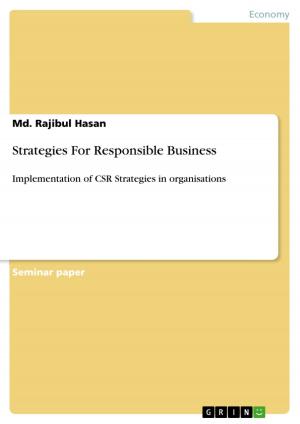The North-South Divide in the United Kingdom - Impact of Regional Disparities on Structural Change in Liverpool
Nonfiction, Social & Cultural Studies, Social Science| Author: | Yasemin Sari | ISBN: | 9783656282075 |
| Publisher: | GRIN Verlag | Publication: | October 2, 2012 |
| Imprint: | GRIN Verlag | Language: | English |
| Author: | Yasemin Sari |
| ISBN: | 9783656282075 |
| Publisher: | GRIN Verlag |
| Publication: | October 2, 2012 |
| Imprint: | GRIN Verlag |
| Language: | English |
Seminar paper from the year 2011 in the subject Business economics - Economic and Social History, grade: 1,7, RWTH Aachen University, language: English, abstract: Even though the United Kingdom is, once again, considered as the trailblazer in transform-ing its economical structure , especially Liverpool still has serious problems to seize the opportunities of this restructuring by responding with an appropriate adaptation process. But why does Liverpool had or has such great hurdles to overcome the challenge of re-structuring compared to other cities? This question, indeed, cannot be answered conclu-sively and undisputed, as the impediments are multifaceted and locally have not been sub-ject to extensive research and study, for instance by the Liverpool Chamber of Commerce. Further on, the process of change is still far from completed. While setting out possible reasons in this paper, the focus will be on spatial factors, as it is conspicuous that regional disparities in the United Kingdom emerged, inter alia, at the ex-pense of the Merseyside region's development. Therefore it is interesting whether and to what extent spatial differences, reflected in a North-South-Divide and in particular in London's dominance, had or still has an influence on Liverpool's process of structural change. Particular attention will be paid on identifica-tion of possible causes of the emergence and even widening of this distinct gap. Before presenting the Core-Periphery Model as a useful explanation for the divide, the findings will be rounded off by some economic fact and figures.
Seminar paper from the year 2011 in the subject Business economics - Economic and Social History, grade: 1,7, RWTH Aachen University, language: English, abstract: Even though the United Kingdom is, once again, considered as the trailblazer in transform-ing its economical structure , especially Liverpool still has serious problems to seize the opportunities of this restructuring by responding with an appropriate adaptation process. But why does Liverpool had or has such great hurdles to overcome the challenge of re-structuring compared to other cities? This question, indeed, cannot be answered conclu-sively and undisputed, as the impediments are multifaceted and locally have not been sub-ject to extensive research and study, for instance by the Liverpool Chamber of Commerce. Further on, the process of change is still far from completed. While setting out possible reasons in this paper, the focus will be on spatial factors, as it is conspicuous that regional disparities in the United Kingdom emerged, inter alia, at the ex-pense of the Merseyside region's development. Therefore it is interesting whether and to what extent spatial differences, reflected in a North-South-Divide and in particular in London's dominance, had or still has an influence on Liverpool's process of structural change. Particular attention will be paid on identifica-tion of possible causes of the emergence and even widening of this distinct gap. Before presenting the Core-Periphery Model as a useful explanation for the divide, the findings will be rounded off by some economic fact and figures.















